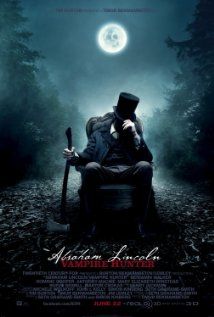
For me, the old hamster wheel is spinning as I remember that there's a difference between alternate history and secret histories. Alternate histories follow a 'what-if' proposition regarding certain conditions and a pivotal set of events that diverged to create a different world than what we have today.
A secret history, on the other hand, would look at the modern world we have, and grounded in that, present a story of things that happen behind the scenes. A 'set the record straight' kind of tall tale. A core challenge is that as we move forward with so much documented and recorded, it's harder and harder to make a modern-era secret history, although the X-Files, Foucault's Pendulum and other works often helped give rise to the form.
Looking at the retro-futurism of steampunk, the futuristic past that never was, is a whole different set of considerations as well.
From a speculative poet's point of view, all of it is of course a delicious challenge. A particularly grueling proposition might well be: How do you create an alternate secret history scifaiku? Can you convey a secret alternate past in 17 syllables?
But having come from a country mired in the Secret War for the better part of the 20th century, this raises questions for those of us whose histories were not as well documented, or in some cases, deliberately obfuscated. Amidst a historical climate of propaganda, disinformation and the fog of war, as Napoleon so famously coined it, Lao American writers, among others, will be challenged by these forms. Both in the research and the creating of new works.
As it is, many Lao American writers are influenced at least in part by the 5 precepts of Lao Buddhism, which includes a high regard for the truth. So writing fiction in general, when time could be spent recording the past before it's lost, can be a tricky situation. Yet, since so much of the historical record was lost as it was, those of us who write need methods to seal in the cracks to hold a narrative together. Enter fiction, and perhaps more often, secret histories.
The global readership is an interesting challenge because it seems a working knowledge of general history from a mainstream perspective is sorely lacking. Asking someone to correctly order the Civil War, World War I, World War 2, the Korean War and the Vietnam War is hard enough. What is an author to do when they want to tell an alternate history of Czarist Russia, or a secret history of Laos told from the Hmong or Tai Dam perspective?
If I was editing such a story, you can probably guess that I'd throw it out if they just shoe-horned in paragraphs of what 'really' happened. I'm from a school of thought that says the burden is on the reader to familiarize themselves with, say, a decolonized version of Filipino history if they then also want to tackle a steampunk Filipino narrative. I dislike the idea of writers having to do double duty.
Dr. Martin Stuart Fox discussed the importance of Laos being in the position of facing multiple histories. With over 160 different ethnic communities who live within our borders, each of them has had different experiences and memories of what were significant events shaping our society. Wheels within wheels that sometimes contradict each other. Some are Royalist views, others are Neutralist or Pathet Lao views. One man's hero is another man's villain. But without working at even partial reconstruction, future generations won't have much of a chance to judge for themselves. But that gets into a much larger discussion for another time.
I imagine that by the end of it all, Lao American writers will probably veer to a middle ground of explaining some of what 'the truth' was, but only enough to bring us up to speed. History is written by the victors is the old maxim. But a civilized world also makes space for the alternate perspectives.
But in the meantime take your bets on the follow-up to Abraham Lincoln: Vampire Hunter. Personally, I'm rooting for a Franklin Pierce: Vampire Slayer story. "The Union at Stake!" or something. Or Teddy Roosevelt and the Werebears.
No comments:
Post a Comment